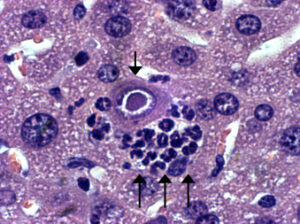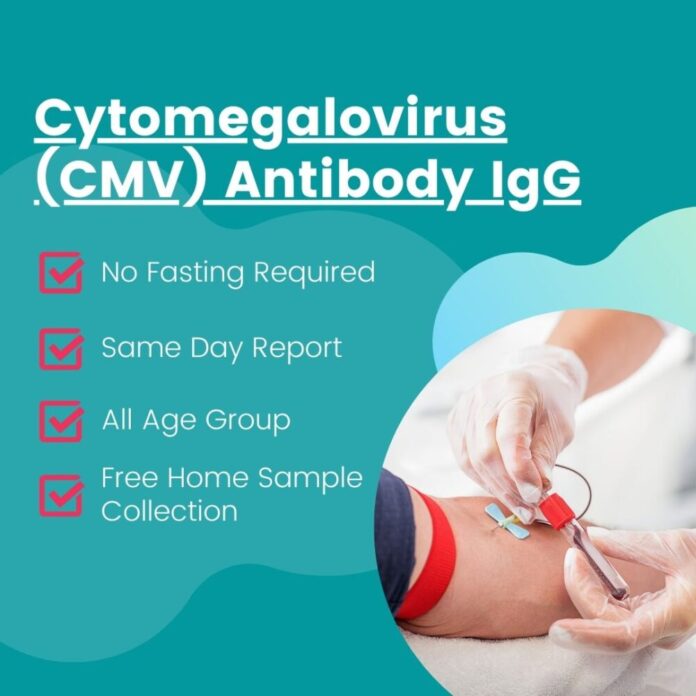One frequent virus is the cytomegalovirus (CMV). Your body harbors the virus for life after infection. Since the cytomegalovirus (CMV) rarely causes difficulties in healthy individuals, the majority of people are unaware that they have it.
CMV is something to be concerned about if you are pregnant or have impaired immune system. When a pregnant woman contracts an active CMV infection, the virus can be transferred to her unborn child, who may subsequently show symptoms. CMV infection can be lethal for those with compromised immune systems, particularly those who have received an organ, stem cell, or bone marrow transplant.
Fluids from the body, including blood, saliva, urine, semen, and breast milk, can transfer the CMV virus from one person to another. While there isn’t a cure, there are drugs that can help manage the symptoms.
Signs and symptoms
When infected with CMV, the majority of healthy individuals may not show any symptoms. Some people only have mild symptoms. The following individuals have a higher likelihood of exhibiting CMV symptoms and signs:
- Newborns who contracted congenital CMV, an infection that developed prior to birth.
- Newborns who contract the infection either during labor or soon after (perinatal CMV). Among these babies are those who have been contaminated by breast milk.
- Individuals with compromised immune systems, including those who have received an organ, bone marrow, or stem cell transplant, or who are HIV positive.

Infants:
The majority of congenital CMV newborns seem healthy at birth.
A small percentage of infants with congenital CMV who seem healthy at birth eventually show symptoms; in some cases, they don’t show up for months or years. Among these late-occurring symptoms, developmental delay and hearing loss are the most prevalent. A tiny percentage of infants may also experience visual issues.
In infants with congenital CMV who are unwell at birth, the following indications and symptoms are more prevalent:
- Premature birth
- Low birth weight
- Yellow skin and eyes (jaundice)
- Enlarged and poorly functioning liver
- Purple skin splotches or a rash or both
- Abnormally small head (microencephaly)
- Enlarged spleen
- Pneumonia
- Seizures
Individuals with compromised immune systems
If your immune system is compromised, you may encounter severe issues that impact your:
- Eyes
- Lungs
- Liver
- Esophagus
- Stomach
- Intestines
- Brain
Healthy individuals
The majority of healthy individuals with CMV infection show little to no symptoms. Some people may experience symptoms comparable to infectious mononucleosis when they are first infected, such as:
- Fatigue
- Fever
- Sore throat
- Muscle aches
When to visit a physician
Consult a physician if:
- You are exhibiting signs of a CMV infection due to a compromised immune system. A CMV infection can be dangerous or even deadly for those with compromised immune systems. Those who have received organ or stem cell transplants appear to be most vulnerable.
- You get a pregnancy-related disease that resembles mononucleosis.
You may be in a reactivation period if you have CMV but are otherwise well and you’re suffering from any mild, widespread disease. For your body to be able to control the infection, self-care measures like obtaining enough sleep should be sufficient.
When to take your child to the doctor
Inform the doctor of your unborn child if you were aware that you contracted CMV during your pregnancy. The physician will probably examine your child to check for visual or hearing issues.





























